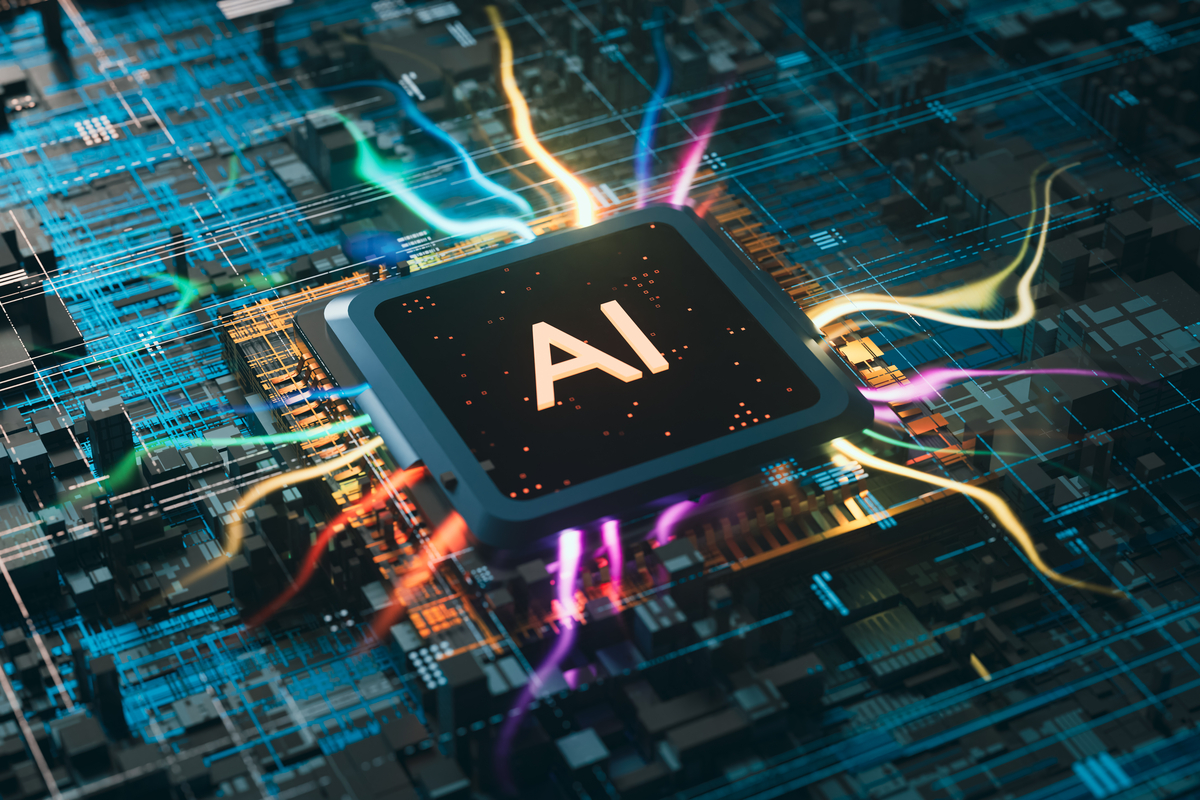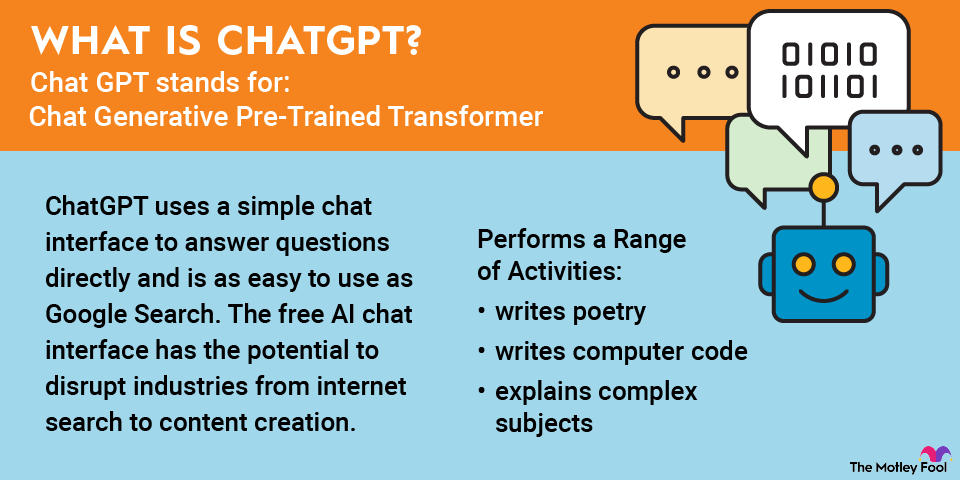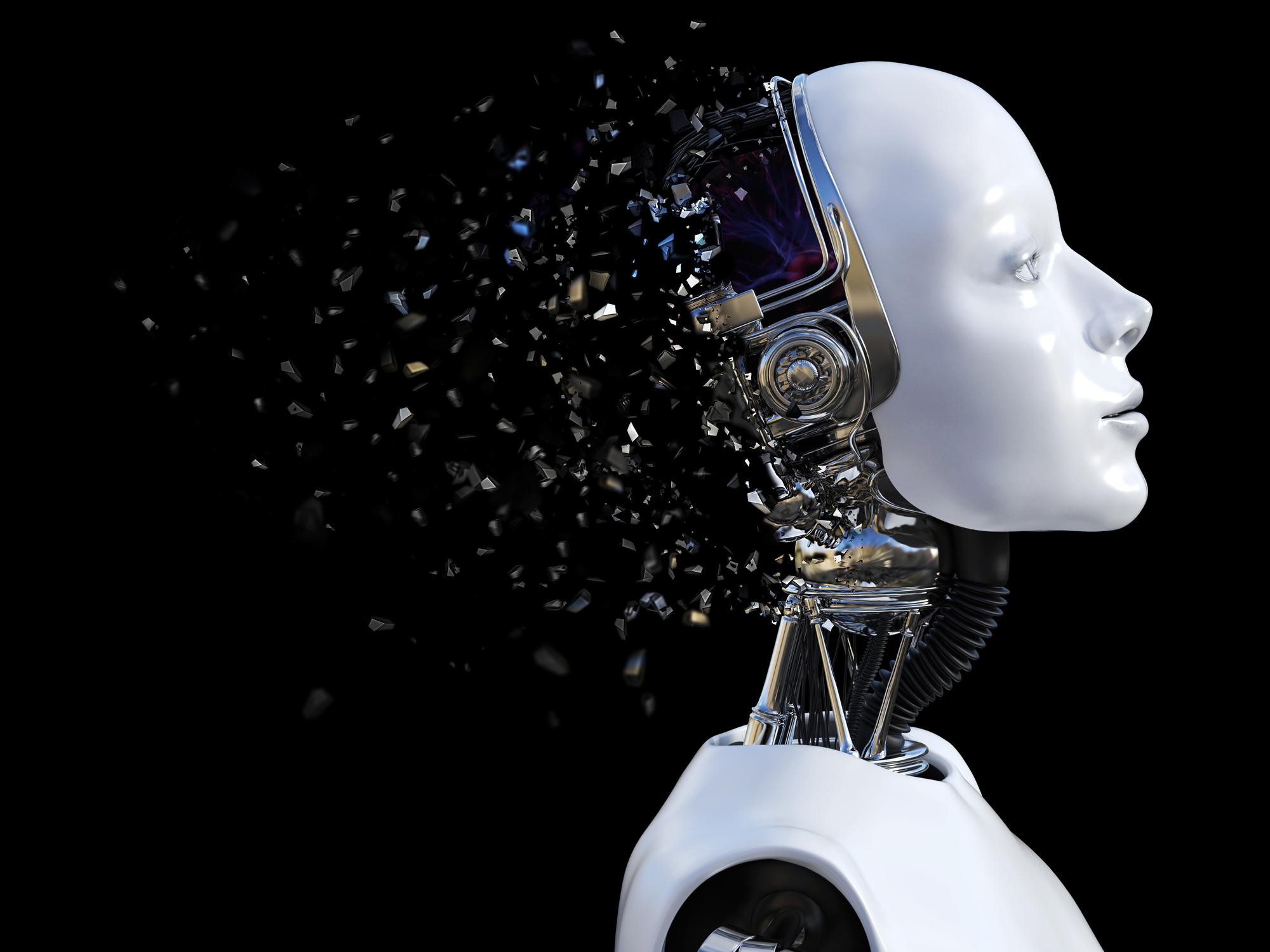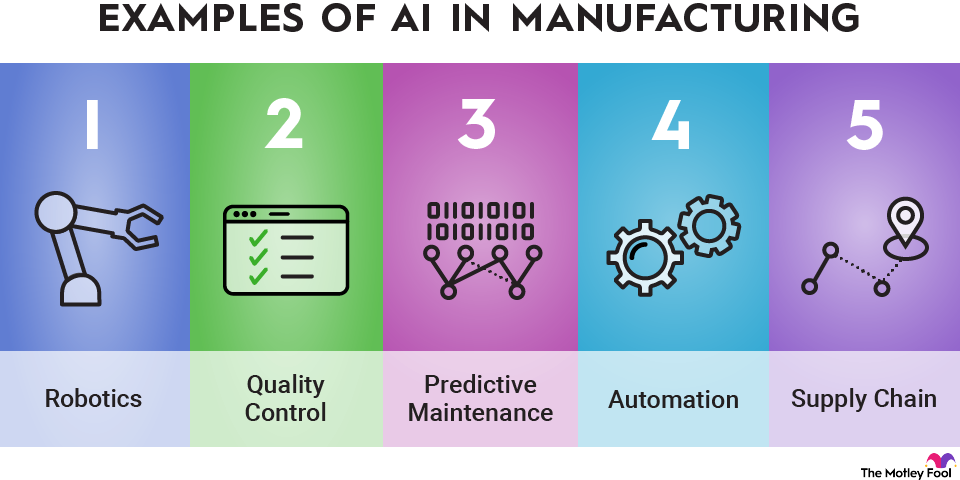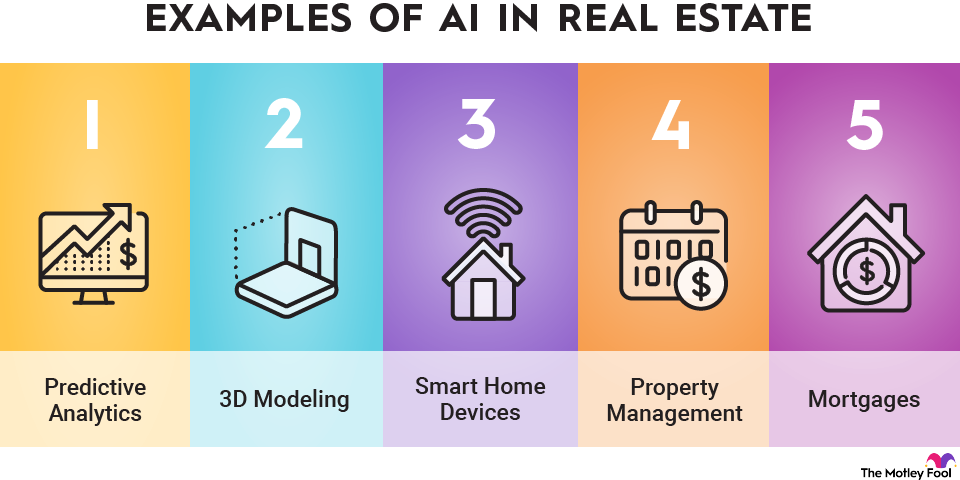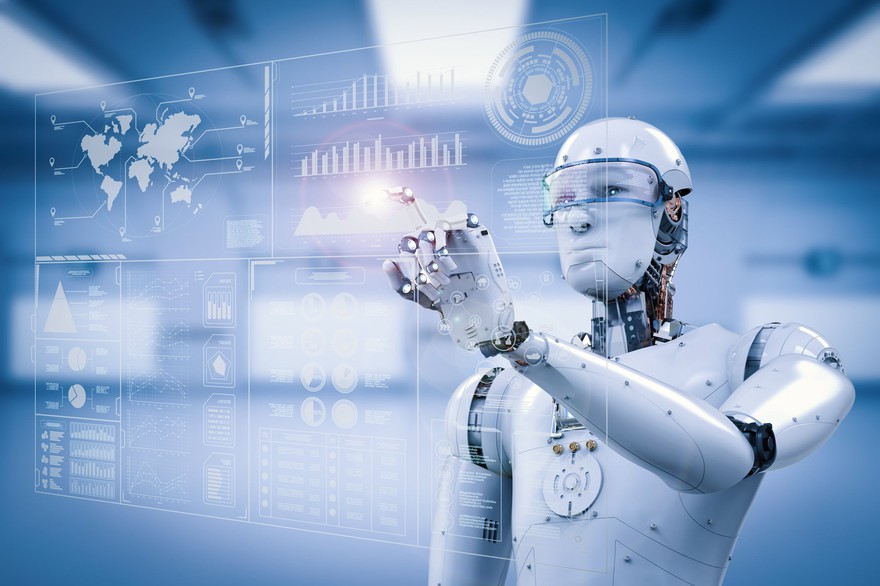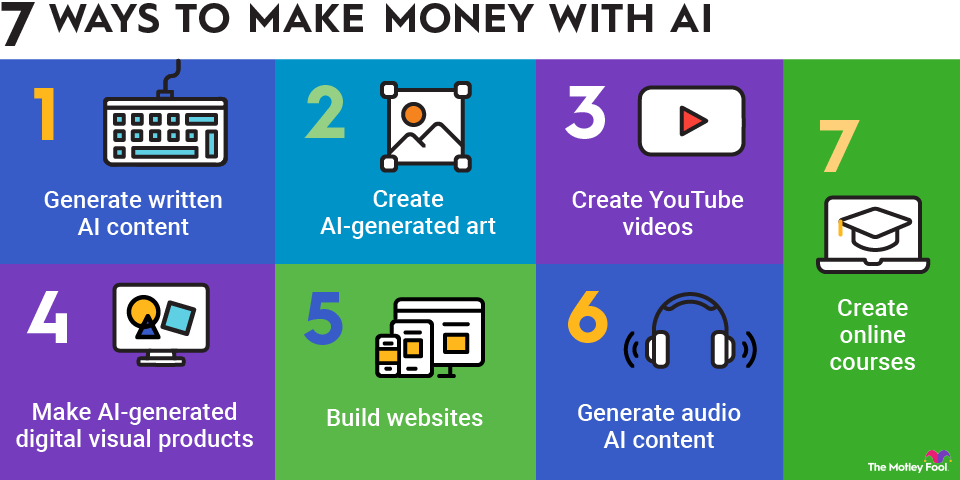Artificial intelligence (AI) is everywhere in the business world these days. There are plenty of companies using AI, just as there are investors looking to capitalize on the opportunities with the new technology.
Anyone who's used ChatGPT or other new AI applications knows that there are many opportunities to leverage artificial intelligence. AI systems can communicate with customers, replace human labor, process large amounts of data, and solve difficult problems.
In this article, we'll explore how companies are taking advantage of AI and the wide variety of ways they're doing so.
Artificial Intelligence
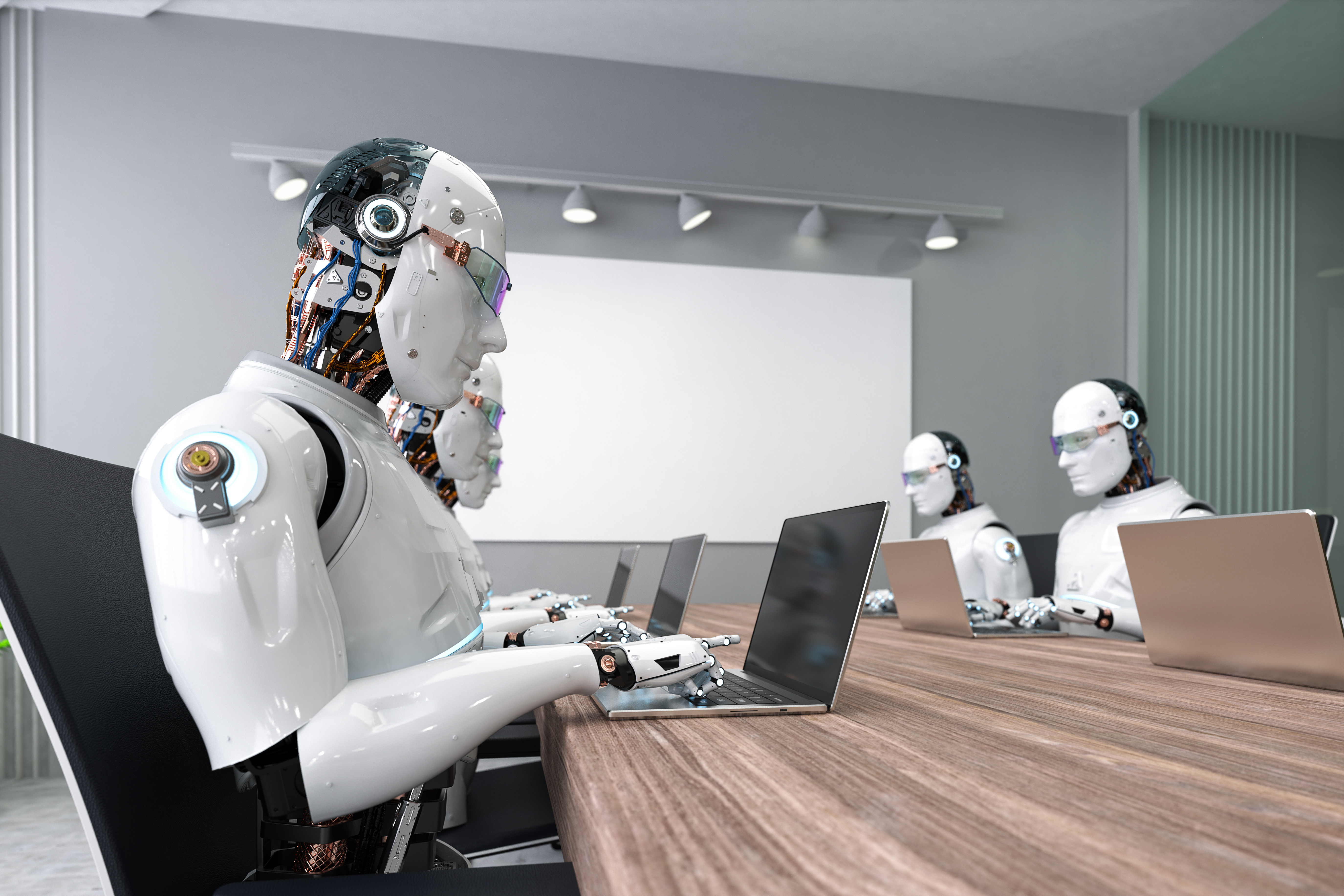
Ten companies leveraging AI
1. Amazon

NASDAQ: AMZN
Key Data Points
E-commerce
2. Meta Platforms

NASDAQ: META
Key Data Points
3. Tesla

NASDAQ: TSLA
Key Data Points
4. Upstart

NASDAQ: UPST
Key Data Points
5. Netflix

NASDAQ: NFLX
Key Data Points
Machine Learning
6. Alphabet

NASDAQ: GOOGL
Key Data Points
7. JPMorgan Chase

NYSE: JPM
Key Data Points
8. Boeing
9. Johnson & Johnson
10. ExxonMobil
Key applications of AI
There are a lot of ways that companies are using AI. Let's review some of the major ones.
- Machine learning: Machine learning is behind everything from recommendation algorithms to image recognition. It's a core function of autonomous vehicles.
- Autonomous vehicles: Autonomous vehicles have the potential to be the most disruptive form of AI. If the technology goes mainstream, it would mean a transformation in transportation and could lead to millions of drivers losing their jobs.
- Robotics: Robotics is another cornerstone application of AI. While you might think of Tesla's Optimus as a prime example of AI in robotics, there are also more basic robots, such as the ones Amazon uses to move packages around its warehouses.
- Fraud detection: For banks and other financial companies, fraud detection plays a significant role in how they use AI. AI is skilled at picking up and identifying patterns that are often the sign of fraud.
- Generative AI: The technology that kicked off the AI boom is also among the most disruptive forms of AI. Generative AI is mostly thought of as online chatbots like ChatGPT, but it includes image generation, video generation, and other forms of generated content.
- Agentic AI: Agentic AI may be the next step beyond generative AI, involving using AI agents to perform tasks, often through chatbots, without human assistance.
What's next for AI?
As you can see from the list above, the biggest companies in the world are turning to artificial intelligence to cut costs and work more efficiently, but they're not alone.
AI is being embraced across the business world by small and medium-sized businesses as well, since its benefits can help businesses of any size.
Staying competitive is crucial in any industry, which means that companies are likely to look for more ways to take advantage of AI. Its ability to cut costs and solve problems that humans can't swiftly solve can give these companies a competitive advantage.
Given that hundreds of billions of dollars are being poured into AI annually, we're likely to see AI advance rapidly and become a greater part of day-to-day business in the coming years.
AI is becoming a bigger part of software, and investors should expect to see AI agents play a greater role in software, allowing businesses to gain insights more efficiently and quickly.
In physical AI, we're likely to see advances in areas like autonomous vehicles and robotics, and AVs can go mainstream one day.
Related investing topics
Challenges of utilizing AI in the business world
While AI is valuable in a number of ways, it can also present challenges for businesses.
- AI is expensive: We're still in the expansion or "land grab" phase of AI, with companies rapidly opening data centers and spending billions of dollars to do so. That means both hardware and software companies are going to have to pay for the AI capabilities that are currently being built out.
- Privacy concerns: There is a long history of AI raising privacy issues. For instance, Amazon's facial recognition tool, Rekognition, was the focus of much controversy when it rolled out to police, which it has since stepped back from.
- Workforce disruption: AI is already changing the workforce as entry-level coding jobs are becoming much harder to find, a sign that work is being replaced by AI. We'll likely see the new technology disrupt other jobs in the coming years.
- Misinformation: Generative AI tools like ChatGPT and Google's AI Overviews are known for "hallucinating" at times, or making up facts. It's important for AI users to double-check information from chatbots with verifiable sources.

